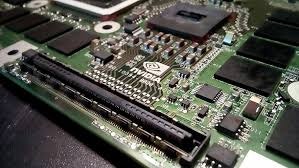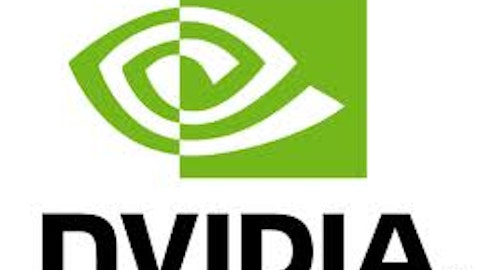If you are looking for the best ideas for your portfolio you may want to consider some of Wedgewood Partners top stock picks. Wedgewood Partners, an investment management firm, is bullish on Nvidia Corp (NASDAQ:NVDA) stock. In its Q3 2019 investor letter – you can download a copy here – the firm discussed its investment thesis on Nvidia Corp (NASDAQ:NVDA) stock. Nvidia Corp (NASDAQ:NVDA) is a technology company.
In October 2019, Wedgewood Partners had released its Q3 2019 investor letter. The investment firm bought Nvidia Corp (NASDAQ:NVDA) stock in Q3 2019. The stock has posted a return of 148.2% in the trailing one year period, outperforming the S&P 500 Index which returned 14.4% in the same period. This suggests that the investment firm was right in its decision.
Wedgewood Partners fund posted a return of 0.39% in the third quarter of 2019, underperforming the S&P 500 Index which returned 1.87% in the same quarter. Let’s take a look at comments made by Wedgewood Partners about Nvidia Corp (NASDAQ:NVDA) in the Q3 2019 investor letter.
“NVIDIA is a pioneer in the development of the graphics processing unit (GPU) – a semiconductor traditionally utilized for rendering computer graphics – and has extended the GPU beyond the graphics domain into “general purpose computing.” We attribute NVIDIA’s success in general purpose computing to their proprietary computing platform and programming model, known as CUDA.
NVIDIA’s compute acceleration platform forms the backbone of a unique value proposition for steadily emerging compute-intensive applications, such as image processing, natural language processing, assisted driving, and ray tracing (the latter relates to the video game domain). The central processing unit (CPU) has been the workhorse of general-purpose computing for decades, as reliable, almost annual efficiency gains helped drive the development of increasingly complex computing applications. As those CPU efficiency gains have slowed over the past several years, developers have begun utilizing GPUs to accelerate applications. While a CPU usually has between a couple and a few dozen cores that are very fast at computation, that contrasts with a CUDA-based NVIDIA GPU that breaks a computation down across hundreds or even thousands of cores and completes it in a fraction of the time. Yet similar to CPUs, and much like Intel’s x86 standard, virtually any industry application can utilize NVIDIA’s GPUs to accelerate performance, thanks to CUDA’s programmability and rich library of software that has been developed for more than a decade.
We expect that the total addressable market served by NVIDIA’s acceleration platform can double over the next five years as data science is increasingly applied in the enterprise, similar to how it has been applied at hyperscale (e.g., Facebook, Google) and scientific computing domains, where NVIDIA has over 90% market share, we estimate. NVIDIA maintains a very high market share in PC and cloud gaming, scientific computing, and hyperscale domains as there are no other GPU-based general compute platforms with software and standardized architectures to rival NVIDIA. Of course, there will be plenty of competitive attempts from alternative silicon providers to accelerate specific computing workloads, namely field-programmable gate arrays (FPGA) as well as other application specific integrated circuits (ASICs); however, we think these offerings lack the standardization and compatibility inherent to NVIDIA’s platform.
The stock has pulled back nearly -40% from its 2018 highs, after growth decelerated from unsustainable levels – driven by a small number of hyperscale operators building inventory. Further, a not insignificant amount of NVIDIA’s revenue over the past few years was generated by cryptocurrency mining applications. As capital fled from cryptocurrency applications, NVIDIA’s revenue from crypto-mining has approached zero and should not be much of a risk going forward. Overall, we think NVDA’s business has bottomed and should be able to sustain faster growth over the next few years. As such, NVIDIA’s fiscal 2021 priceto-earnings multiple is 24X and trading well below its 5-year average of 29X.”

Last month, we published an article revealing that Wedgewood Partners sold its position in Nvidia Corp (NASDAQ:NVDA) stock in the third quarter of 2020.
In Q2 2020, the number of bullish hedge fund positions on Nvidia Corp (NASDAQ:NVDA) stock decreased by about 3% from the previous quarter (see the chart here), so a number of other hedge fund managers don’t believe in Nvidia’s growth potential. Our calculations showed that Nvidia Corp (NASDAQ:NVDA) is ranked #27 among the 30 most popular stocks among hedge funds.
The top 10 stocks among hedge funds returned 216% since the end of 2014 and outperformed the S&P 500 Index ETFs by more than 121 percentage points. We know it sounds unbelievable. You have been dismissing our articles about top hedge fund stocks mostly because you were fed biased information by other media outlets about hedge funds’ poor performance. You could have doubled the size of your nest egg by investing in the top hedge fund stocks instead of dumb S&P 500 ETFs. Below you can watch our video about the top 5 hedge fund stocks right now. All of these stocks had positive returns in 2020.
Video: Top 5 Stocks Among Hedge Funds
At Insider Monkey we leave no stone unturned when looking for the next great investment idea. For example, we believe electric vehicles and energy storage are set to become giant markets. Tesla’s stock price skyrocketed, yet lithium prices are still below their 2019 highs. So, we are checking out this lithium stock right now. We go through lists like the 10 most profitable companies in the world to pick the best large-cap stocks to buy. Even though we recommend positions in only a tiny fraction of the companies we analyze, we check out as many stocks as we can. We read hedge fund investor letters and listen to stock pitches at hedge fund conferences. You can subscribe to our free daily newsletter on our website:
Disclosure: None. This article is originally published at Insider Monkey.





